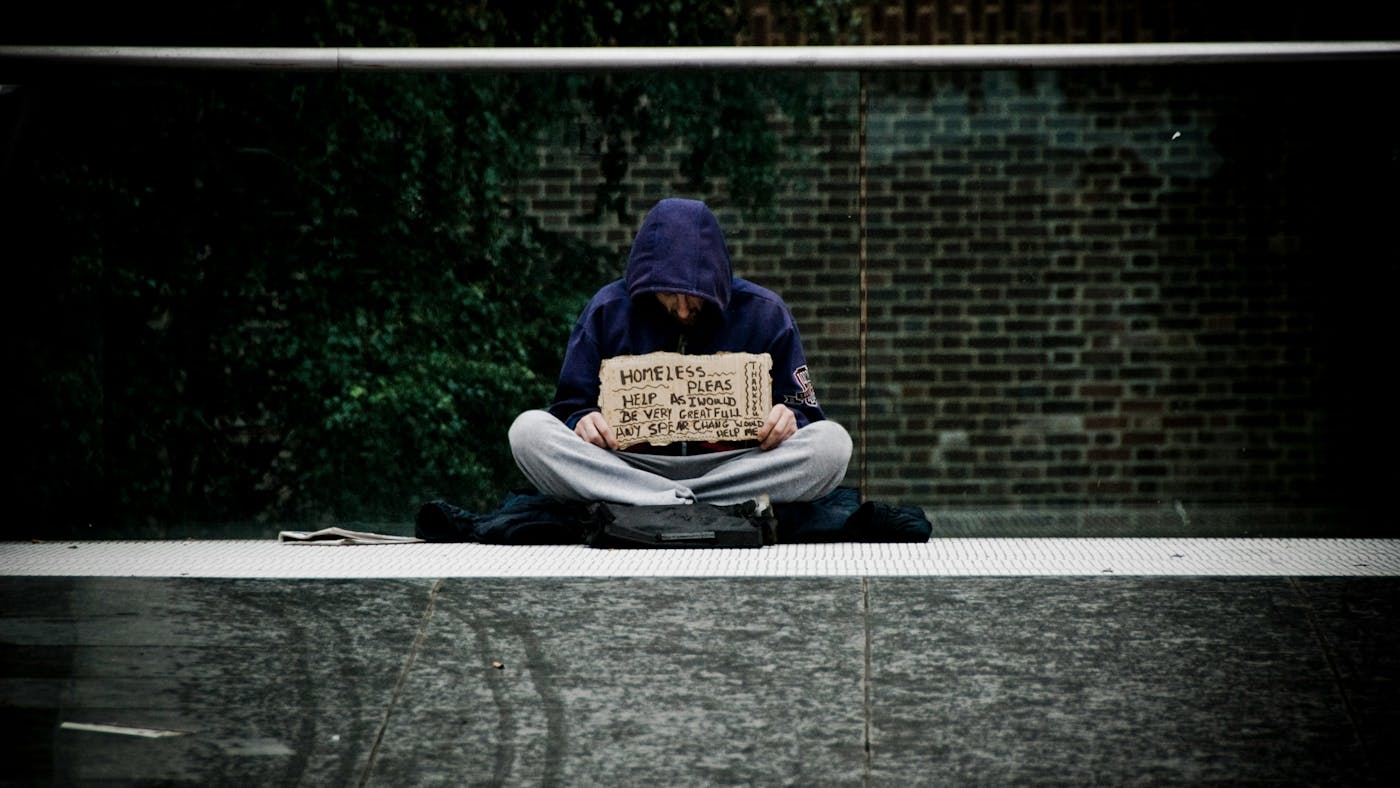Eager Compassion in Practice
Five Ways We Help the Poor

The last of the apostles, Paul, noted in Galatians 2:9–10 how happy he was that the earlier apostles assigned him two tasks: missions and mercy ministry.
When [they] perceived the grace that was given to me, they gave the right hand of fellowship to Barnabas and me, that we should go to the Gentiles. . . . Only, they asked us to remember the poor, the very thing I was eager to do.
That’s a different reaction from what pastors often get when they ask congregants to remember the poor. A few are eager. Others ignore the call altogether. Many respond reluctantly, like all of us do at some point when growing up: Do I have to? I can understand the reluctance. Some people insist that they first have to remember their own families. They are struggling to make ends meet. Some are working two jobs. I sympathize with them.
I’m more critical of some others.
Less Compassionate Conservatism
For two years during the nineties, I went on more than a hundred flights per year to promote community-level projects to help the materially poor. As a “platinum medallion” Delta customer, I frequently had free upgrades to first class that left me sitting next to skilled and wealthy doctors, lawyers, and other professionals. I would ask what they thought about their tax bills. “Too high.” I would then ask, “What if you could lower your tax bill by committing ten percent of your work time to direct help for those living on the other side of the tracks?” Oh. They typically responded with words like these: “Hmm, paying up isn’t that bad after all.” Few were eager to remember the poor.
“In our middle-class and wealthy churches, we may talk about remembering the poor, but do we mean it?”
Remember, that was during the nineties, a blessed decade in American life. From 1991 (when the Soviet Union disintegrated) to September 11, 2001, we believed we had no enemies in the world that could trouble us. The economy was generally good. By the end of the decade, the federal government had a balanced budget. (We should repeat the words “balanced budget” three times while clicking our ruby slippers because now that seems like a fairy tale.)
If many people of means did not want to remember the poor then, how likely is enthusiasm now, when callous conservatism seems to have driven out compassionate conservatism?
That’s only one of our problems.
Do We Really Mean It?
A new book by David Bahnsen, Full-Time: Work and the Meaning of Life, notes that in the past two decades suicide and drug overdoses are both up thirty percent. One out of six American adults regularly takes antidepression medication, and (coincidentally?) one out of six prime working-age men (ages 25 to 54) is not in the workforce. And “volunteering is on the decline,” according to an NPR report just before Christmas.
Again, I’m not criticizing those who are working two jobs or are overwhelmed with family needs. Our lives have different seasons. Besides, all of us are spiritually poor. We all need help. But for anyone who has a couple of hours a week available to help the materially poor, including many widows and orphans, including women facing a crisis pregnancy and not knowing how they will survive, including others who are heavy laden — it’s worth remembering that Paul did not just talk about helping those poor: he was eager to help them.
In 1948, when Harry S. Truman was president, South Carolina senator Strom Thurmond vehemently attacked Truman’s call for ending racial discrimination by the federal government. A reporter noted that Thurmond had faithfully supported President Franklin Roosevelt, who had said pretty much what Truman was saying. The reporter asked Thurmond, “Why are you being so critical?” Thurmond replied, “Truman really means it.”
Today, in our middle-class and wealthy churches, we may talk about remembering the poor, but do we mean it?
Five Ways to Encourage Eagerness
Some people see preaching the gospel and helping the poor as competitors for time and treasure: choose one or the other. That’s not true. If we are truly grateful for the grace given us, we will eagerly tell others of that grace, not only in word but also in deed, not only with words but also with dollars, and not only with dollars but also with our time.
When gratitude for the gospel awakens eagerness, church leaders need to have practical programs for remembering and helping the poor. Here then are five practical steps that we can take to encourage eagerness.
1. Start really small.
First, when congregation members don’t know how to swim, start them in the shallow end of the pool. Do not proudly proclaim, “We will work with the long-term homeless.” No, many of those are the hardest to help, and the frustrations of trying will leave many people uneager to try again. Instead, start with children in grades one through four who are falling behind in reading. That puts them in danger of dropping out of high school and becoming ineligible for most jobs. Listening to little children read demands patience and the ability to say, “Good job.” They’re not threatening, and success there leaves helpers eager to move on to harder tasks.
2. Distinguish unable from unwilling.
Second, remember the poor by not treating them in a one-size-fits-all way. Two centuries ago, the mayor of Boston, Josiah Quincy, made a good tripartite distinction. Some among the poor are “able” (ready and willing to work, and thus needing a job, not alms). Some are “unable” (and thus worthy of alms). Some are able but “unwilling.” Church volunteers are likely to find pleasure in working with the able and the unable, and frustration with the unwilling. Quincy also recognized the need to know the poor individually and not make assumptions based on appearance. He gave the poor opportunities and let them show in which category they belonged.
3. Begin with talents, not needs.
Third, we can increase eagerness and avoid making premature distinctions by practicing ABCD, “asset-based community development,” an approach based on John McKnight’s teaching about starting with the talents of those seeking help rather than their needs, and building on what they can do rather than what they can’t do. Michael Mather, in Having Nothing, Possessing Everything, describes a church that put ABCD into practice: instead of passing out dollars, it helped a seamstress, a shoe repairer, a musician, and many others to monetize their skills.
4. Recover the goodness of work.
Fourth, Bahnsen’s Full-Time points out that American culture generally (including church culture) undervalues work. Many see work as a means to the end of not working. Many miss the way God created both physical and intellectual work before that tragic day in Eden: Adam was a gardener and a namer. After the fall, work is harder but still a means to discover our meaning and purpose, and to glorify God by cultivating the world he created. When some of the wealthy among us stop working as soon as they can, it’s hard to insist upon its importance for everyone. High schools and colleges earn their funding only when graduates wake up eager to work each weekday.
5. Learn from the experienced.
Fifth, we can learn not only from Bahnsen and Mather but from other books past and present. I learned a lot during the 1990s while writing on these issues. The deacons in my church read Steve Corbett and Brian Fikkert’s When Helping Hurts: How to Alleviate Poverty Without Hurting the Poor. Note the practical subtitles on three more twenty-first-century books: Robert Lupton’s Toxic Charity: How Churches and Charities Hurt Those They Help — And How to Reverse It, Lawrence Mead’s From Prophecy to Charity: How to Help the Poor, and Howard Husock’s The Poor Side of Town — and Why We Need It.
“The unjust, rich or poor, live by making demands. The just, poor or rich, live by faith.”
While writing a preface to the thirtieth-anniversary edition of The Tragedy of American Compassion, I read Gene Dattel’s good history book, Reckoning with Race — and saw that my reckoning was inadequate. Books by John McWhorter (including Losing the Race) and Thomas Sowell (including The Thomas Sowell Reader) can also help. Books from the right and left such as Jason Riley’s Please Stop Helping Us and Elizabeth Wilkerson’s Caste provoke thinking about the consequences of slavery, segregation, and hating our neighbors.
None of those five steps will work, of course, unless we desire God. The unjust, rich or poor, live by making demands. The just, poor or rich, live by faith.




